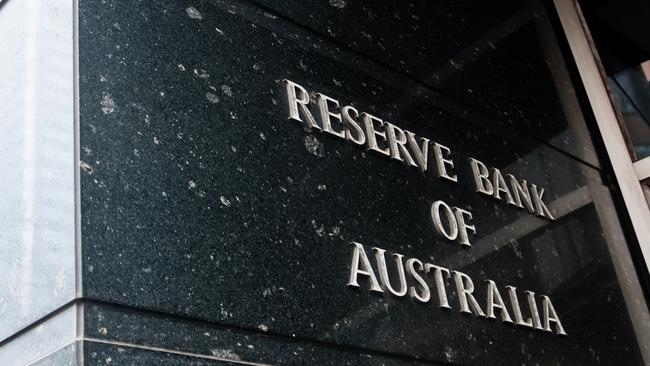RBA warns rising inflation and interest rates will hit borrowers trying to meet repayments
Highly indebted borrowers face a shock to their household budgets if interest rates rise by an expected two percentage points over the next two years, the RBA warns.

Highly indebted borrowers face a shock to their household budgets if interest rates rise by an expected two percentage points over the next two years, which could cause a 15 per cent drop in home values, the Reserve Bank has warned.
On the eve of a federal election campaign where cost-of-living pressures will be top of mind for swinging voters in mortgage-belt suburbs, the central bank said some families will struggle to meet loan repayments if rising inflation is not accompanied by faster household income growth.
Wage stagnation, the other side of the living costs battleground, is central to Labor’s campaign to flip Coalition-held marginal seats, most of which are located in states where pay growth has fallen behind consumer inflation since the 2019 election.
In its semi-annual Financial Stability Review, published on Friday, the RBA foreshadowed the potential for falls in housing prices, lower after-inflation incomes, or both as expected tighter monetary policy begins to bite from the middle of the year.
One-quarter of all new home loans have a debt-to-income ratio above six, a benchmark seen by regulators as risky, which the RBA said was noticeably higher than a year earlier.
National housing values increased by 22 per cent last year, the strongest annual growth rate since the late 1980s, pricing many prospective first-home buyers out of the market and prompting the government to extend a popular home loan guarantee scheme.
While the central bank noted the residential market had cooled in most cities in the early months of this year, it warned future increases in interest rates could hit property and other asset prices.
“Estimates using a model of the housing market that takes into account historical relationships between interest rates and both demand and supply factors suggest that a 200-basis point increase in interest rates from current levels would lower real housing prices by around 15 per cent over a two-year period, relative to the baseline model projection in the absence of an interest rate shock,” the review said.
On Friday, Scott Morrison said the Coalition would always be able to keep the cost of living down better than Labor “because we know how to manage money”.
In a visit to the Victorian seat of Corangamite, held by Labor with a margin of 1.1 per cent, the Prime Minister said retaining Australia’s AAA credit rating would put downward pressure on interest rates.
“In times when cost of living is coming under a lot of pressure, how you manage the nation’s finances, how you manage a strong economy – that is the best way to keep mortgage rates as low as we possibly can,” Mr Morrison said.
“We know how to retain a (triple-A) credit rating. We know how to grow the economy. And that’s been proven in one of the most difficult times Australia has faced over the last three years.”
In Adelaide, Anthony Albanese promised spending restraint, given major lenders are tipping rate rises straight after the election, expected to be called this weekend.
“Our childcare policy is a key one to take pressure off working families, our energy policy and climate policy that will reduce power prices by $275, on average, for every household by 2025,” the Opposition Leader said.
“We’re not promising to change the world, we’ve been very careful with our spending commitments, because we do not want to place any inflationary pressure on the economy. But we have a plan for growth … which will grow the economy and take some of that pressure off.”
The RBA also said the risk of cyber attacks for banks has increased after Russia’s assault on Ukraine and the central role of the financial system in the application of sanctions on Russia.
Russia’s invasion and pandemic-related supply-chain disruptions are causing a surge in global inflation, most acutely in prices at the petrol pump, which are squeezing the finances of the working families being targeted by the major political parties. Last week’s budget included an $8.6bn household relief package, including a six-month cut in fuel excise by 22 cents a litre, $250 cash payments to six million low-income Australians and an extra $420 tax offset to 10 million workers.
On Tuesday, RBA governor Philip Lowe revealed the central bank board is no longer “prepared to be patient”, marking a key change in guidance. Economists believe the central bank will raise its cash rate from 0.1 per cent to 0.25 per cent in June.
A post-election hike would be the first lift in official interest rates since November 2010, and the major banks are tipping four or five rises in the next six months.








To join the conversation, please log in. Don't have an account? Register
Join the conversation, you are commenting as Logout